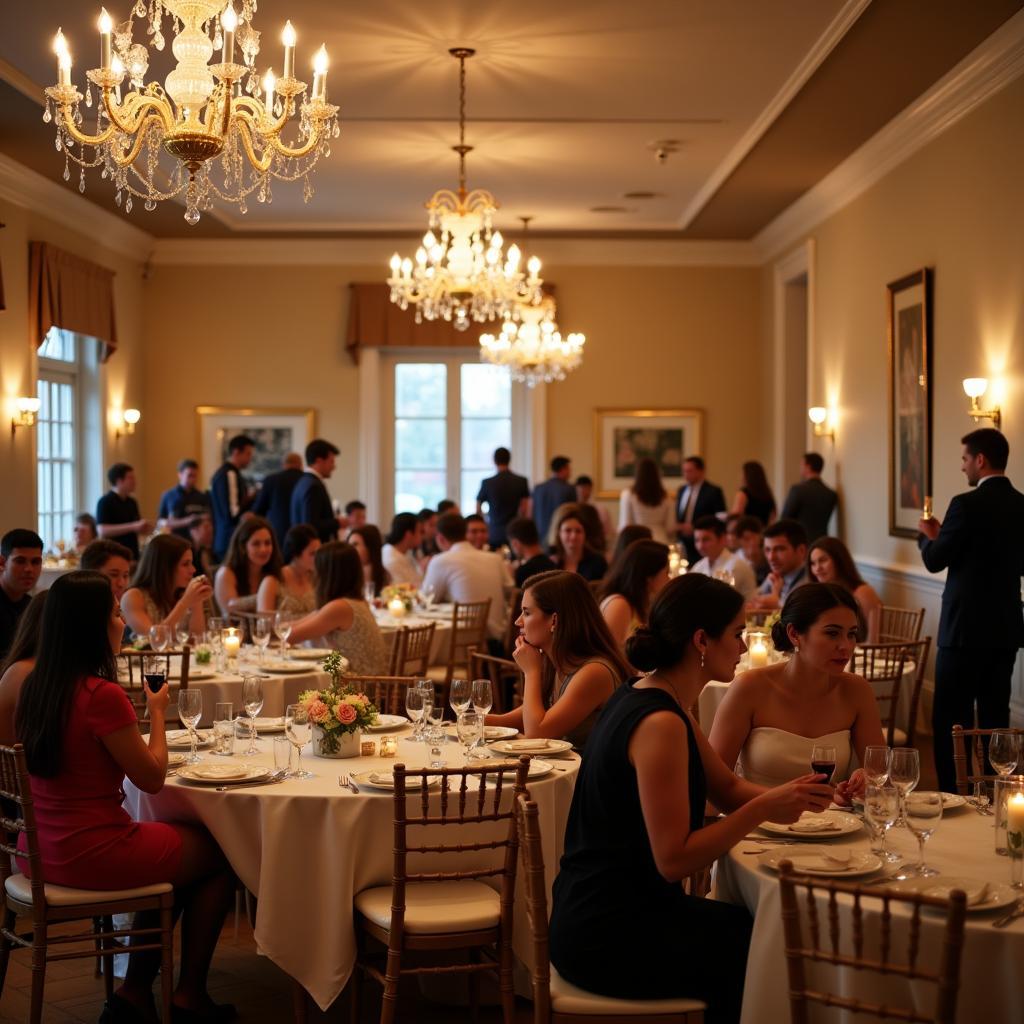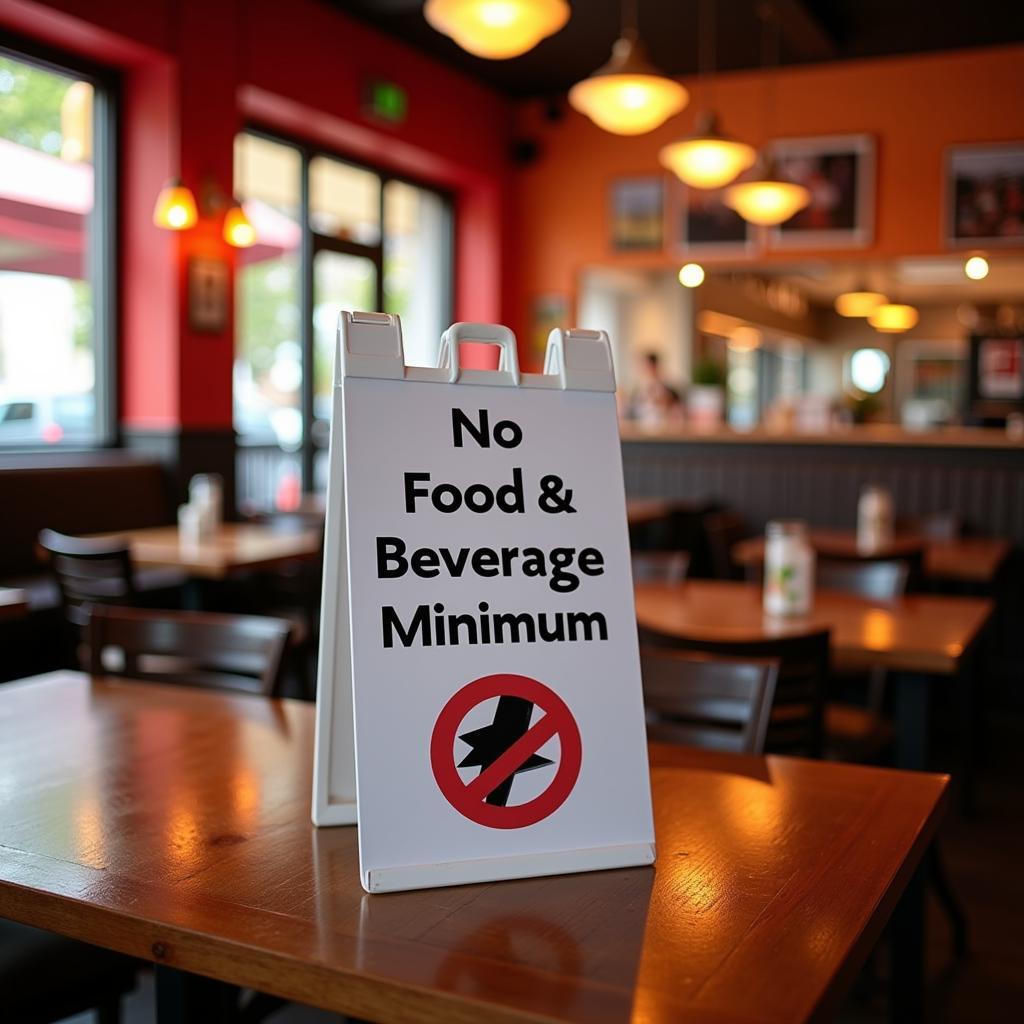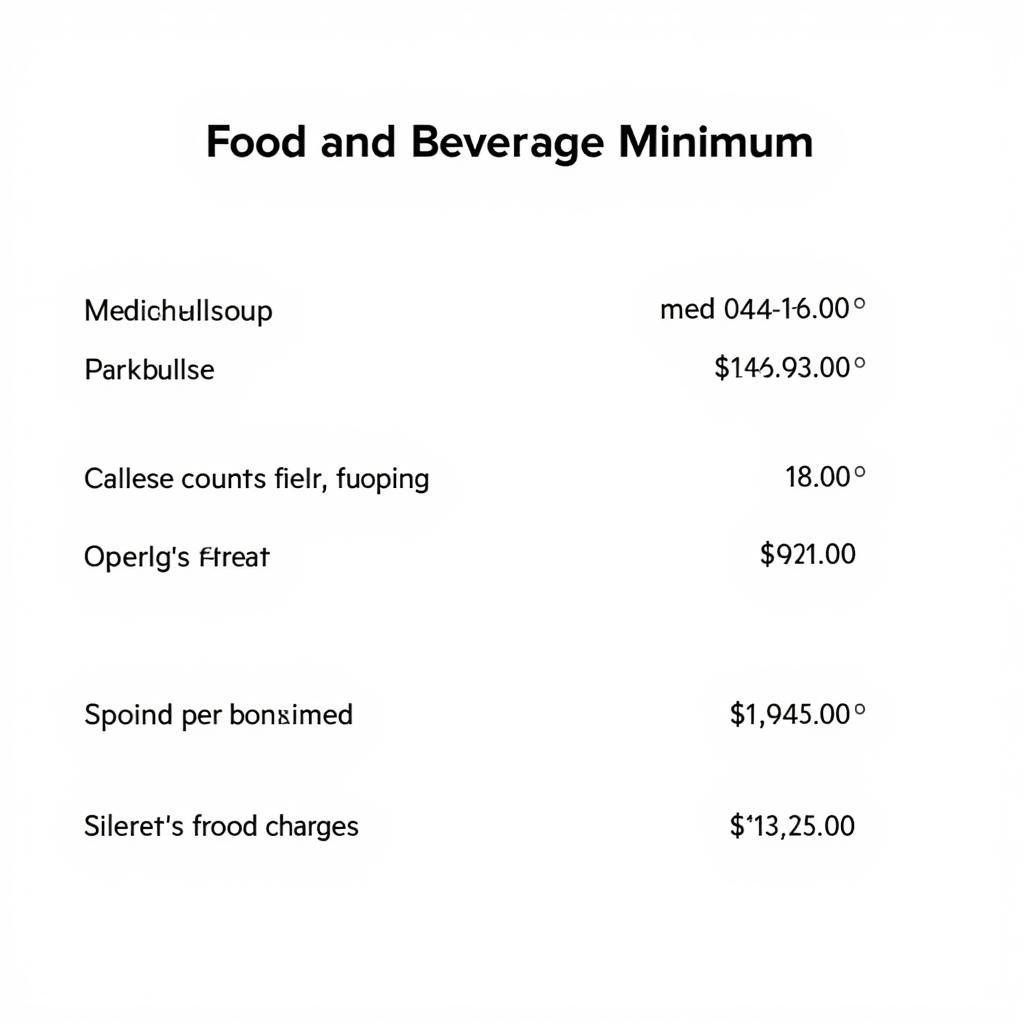A food and beverage minimum, often abbreviated as F&B minimum, is a predetermined spending requirement imposed by venues, usually for private events like weddings, corporate gatherings, or large parties. This means guests are obligated to spend a certain amount of money on food and drinks during their event, regardless of their actual consumption. Understanding what a food and beverage minimum entails is crucial for effective event planning and budgeting. Let’s delve deeper into this common practice.
Decoding the F&B Minimum: What Does it Mean for Your Event?
F&B minimums are designed to guarantee revenue for the venue, covering costs associated with staffing, setup, and potential loss of business from other bookings. They are most commonly encountered in venues with dedicated event spaces, such as hotels, restaurants, and banquet halls. The minimum can be based on a per-person amount or a total sum for the entire event. Not meeting the minimum often results in a fee to cover the difference.
If you’re looking for reliable food and drink suppliers for your event, be sure to check out resources online. For example, you can find information on wholesale food and beverage suppliers to help you source the best ingredients.
Factors Influencing the Food and Beverage Minimum
Several factors influence the F&B minimum a venue sets, including:
- Day of the week and time of year: Weekends and peak seasons (like holidays or wedding season) often command higher minimums.
- Event duration: Longer events typically have higher minimums.
- Venue popularity and exclusivity: High-demand venues often set higher minimums due to their desirability.
- Included services: Venues offering additional services, such as decorations or entertainment, may incorporate those costs into the minimum.
 Wedding Reception with F&B Minimum Signage
Wedding Reception with F&B Minimum Signage
Navigating the F&B Minimum: Tips and Strategies
Understanding how to navigate F&B minimums can significantly impact your event budget and planning process. Here are some valuable tips:
- Negotiate: Don’t be afraid to negotiate the minimum, especially if your event is during an off-peak time or if you’re booking well in advance.
- Factor in other costs: Remember to consider taxes, service charges, and gratuities, which are typically added to the minimum.
- Customize your menu: Work with the venue to create a menu that appeals to your guests while staying within your budget.
- Understand the consequences: Be clear about the penalties for not meeting the minimum and explore alternative options if necessary.
You can find more helpful resources for party planning, like reviews on My Perfect Pet Food if you’re hosting a pet-friendly event.
Is a Food and Beverage Minimum Required?
Not all venues require an F&B minimum. Smaller venues or those focusing on à la carte dining may not impose such requirements. Always inquire about the F&B minimum policy upfront during your venue search.
 Restaurant with No F&B Minimum Sign
Restaurant with No F&B Minimum Sign
What Happens if You Don’t Meet the Minimum?
If you don’t meet the agreed-upon F&B minimum, the venue will typically charge you the difference. This is sometimes referred to as an “attrition fee.” Ensure you fully understand this clause in your contract. Looking for custom packaging for your event favors? Consider checking out custom plastic food packaging options online.
Calculating and Budgeting for Your F&B Minimum
Accurately calculating and budgeting for your F&B minimum is crucial for successful event planning. Consider your guest count, estimated consumption per person, and any additional costs like taxes and service charges.
“Understanding your event’s specific needs and the venue’s policies surrounding F&B minimums is essential for a successful and stress-free event,” advises renowned event planner, Amelia Carter. She also emphasizes the importance of open communication with the venue throughout the planning process.
 Spreadsheet Calculating F&B Minimum
Spreadsheet Calculating F&B Minimum
Conclusion
Understanding what a food and beverage minimum entails is paramount for effective event planning. By carefully considering the factors influencing the minimum, negotiating strategically, and accurately budgeting, you can ensure your event is both successful and financially sound. Remember to discuss all details with the venue upfront to avoid any surprises. For quick and easy meal options, explore delivery Chinese food OKC.
FAQ
- What Is A Food And Beverage Minimum? A predetermined spending requirement on food and drinks at an event.
- Are F&B minimums negotiable? Yes, they can often be negotiated, especially during off-peak times.
- What happens if I don’t meet the minimum? You’ll likely be charged the difference, known as an attrition fee.
- Do all venues have F&B minimums? No, not all venues require a minimum spend.
- How can I budget for the F&B minimum? Consider guest count, estimated consumption, and additional costs like taxes and service charges.
- Why do venues have F&B minimums? To guarantee revenue and cover operational costs.
- What factors affect the F&B minimum? Day of the week, time of year, event duration, and venue popularity.
Need more information? Check out our articles on food and drink supplier.
When in need of assistance, please contact us at Phone Number: 02437655121, Email: minacones@gmail.com Or visit our address: 3PGH+8R9, ĐT70A, thôn Trung, Bắc Từ Liêm, Hà Nội, Việt Nam. We have a 24/7 customer service team.